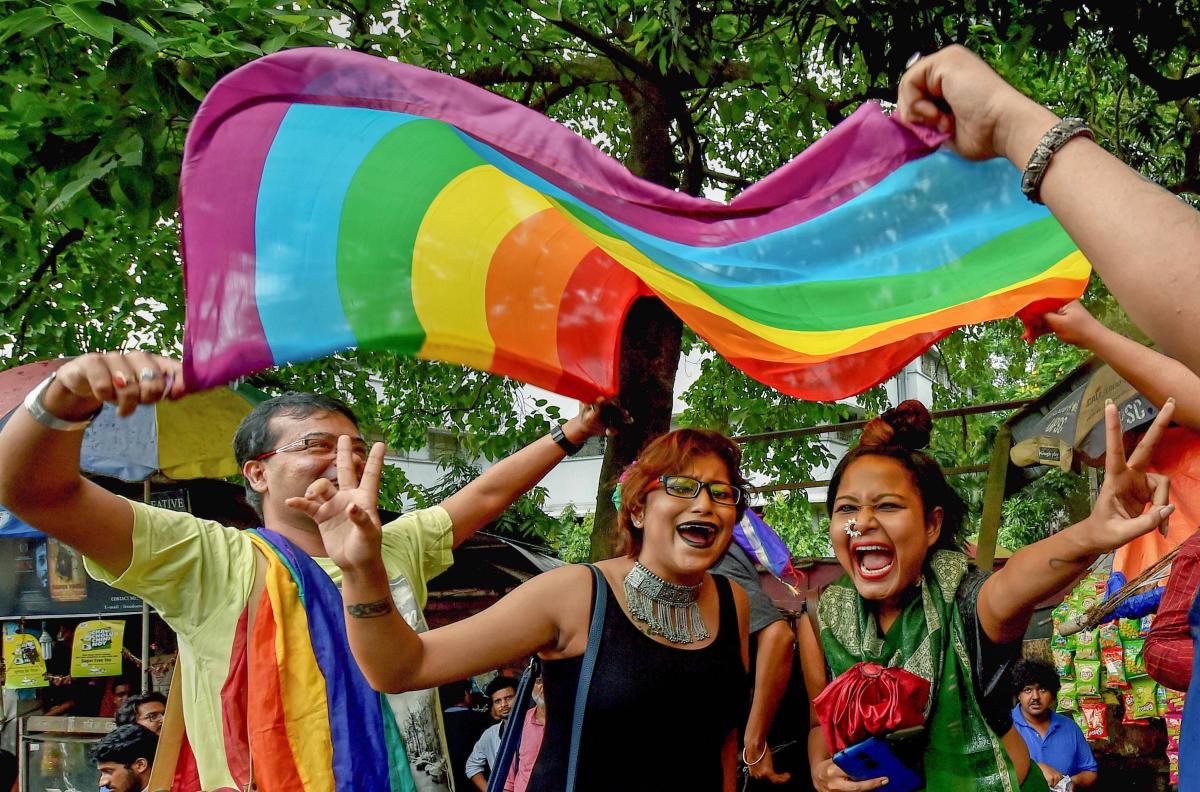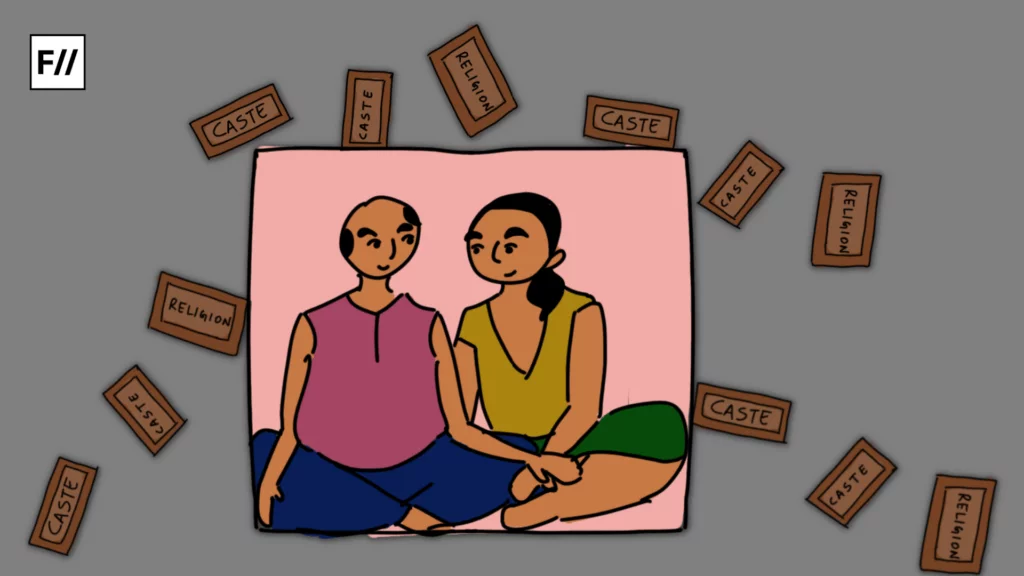Is Pride March primarily a celebration rather than a protest? Some would argue that it is just a celebration. This viewpoint inadvertently reinforces the narratives imposed by capitalism around Pride March. It is evident that there is a need to challenge this notion and highlight the true nature of Pride as both a celebration and a form of resistance.
Pride, at its core, is a powerful act of protest and resistance against the hetero-normative structures imposed by the Brahminical regime. It goes beyond the superficial claims of inclusivity made by capitalist models, which often use the slogan “love is love,” without truly delving into the realities of loving beyond the established structures dictated by hetero-normative forces.
Pride is an event that not only celebrates the diverse identities within the LGBTQ+ community but also serves as a poignant act of resistance. It challenges the oppressive societal norms and prejudices that marginalise individuals based on their gender identity and sexual orientation.
To truly understand the political significance of Pride, we must acknowledge its roots in the historic Stonewall uprising of 1969. The Stonewall uprising of June 28, 1969, at the Stonewall Inn, a gay bar in New York City was a pivotal moment in LGBTQ+ history. It marked a spontaneous and forceful response by the community against a police raid, becoming a symbol of resistance against ongoing discrimination and violence. It was a series of demonstrations by members of the community.
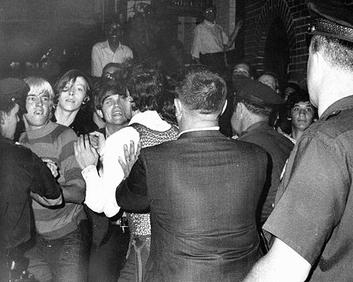
Prior to the uprising, the queer community had endured years of harassment and oppression, frequently targeted by police raids. The patrons of the bar and the local community fought back, sparking a multi-day display of resistance that would shape the modern LGBTQ+ rights movement.
The impact of the Stonewall uprising reverberated far beyond those few eventful nights. It brought attention to the systematic brutality faced by LGBTQ+ individuals at the hands of law enforcement and galvanised a collective determination to no longer accept second-class treatment. Additionally, the Stonewall uprising had a profound cultural impact, inspiring LGBTQ+ individuals to embrace their identities openly and reject the fear that had previously kept them hidden. Inspired by the Stonewall uprising, the LGBTQ+ community in New York City organised the world’s first Pride Parade on June 28, 1970, exactly one year after the uprising.
Pride, at its core, is a powerful act of protest and resistance against the hetero-normative structures imposed by the Brahminical regime. It goes beyond the superficial claims of inclusivity made by capitalist models, which often use the slogan “love is love,” without truly delving into the realities of loving beyond the established structures dictated by hetero-normative forces. Pride is an event that not only celebrates the diverse identities within the LGBTQ+ community but also serves as a poignant act of resistance.
The parade, then known as the Christopher Street Liberation Day March, was named after the street on which the Stonewall Inn is located, held to commemorate the spirit of resistance and celebrate their identities.
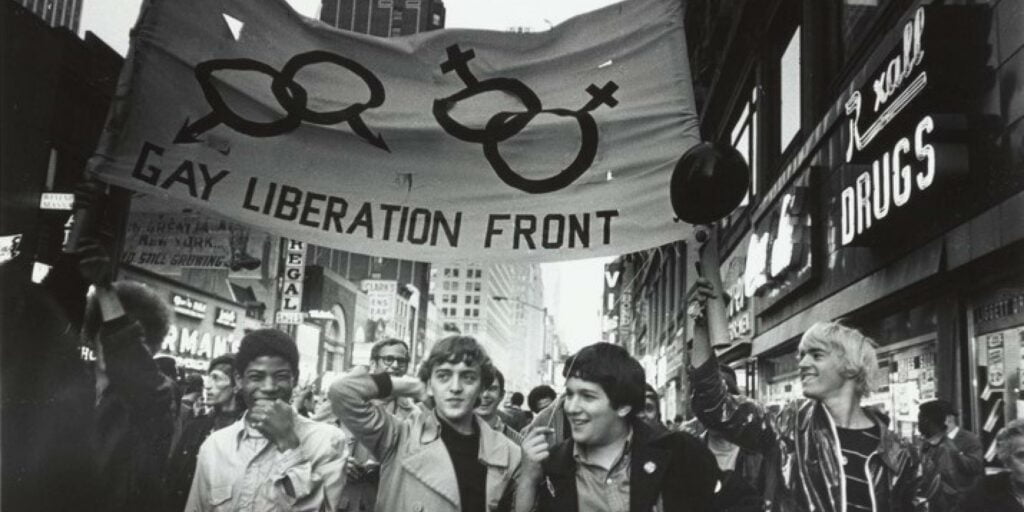
Thus, the initial Pride event was a protest march, driven by a desire to challenge and dismantle oppressive systems. It was rooted in the spirit of resistance, rather than the flamboyant spectacles commonly associated with it today. It stands as a powerful reminder of the movement’s origins and the ongoing fight for equality and also symbolises the defiance of a marginalised community against a repressive system that sought to enforce strict gender norms and deny basic human rights.
Capitalism’s inclusive illusion
It is vital to acknowledge that queer liberation cannot be achieved within the confines of capitalism. Capitalist propaganda operates by using superficial displays of inclusivity and rainbow branding to create an illusion of support for the LGBTQ+ community. Many brands capitalise on Pride Month by adorning their products with rainbow flags and slogans, presenting themselves as allies.
However, it is crucial to delve beyond the surface-level symbolism and critically examine the complex nature of Pride March. Questioning the prevailing narrative pushed by certain LGBTQ+ NGOs is essential, as these organisations may be driven by a capitalist agenda that downplays the protest and resistance aspects of Pride. They may align themselves with capitalist ideologies that promote the idea that Pride is solely a festive occasion, devoid of its political undertones.
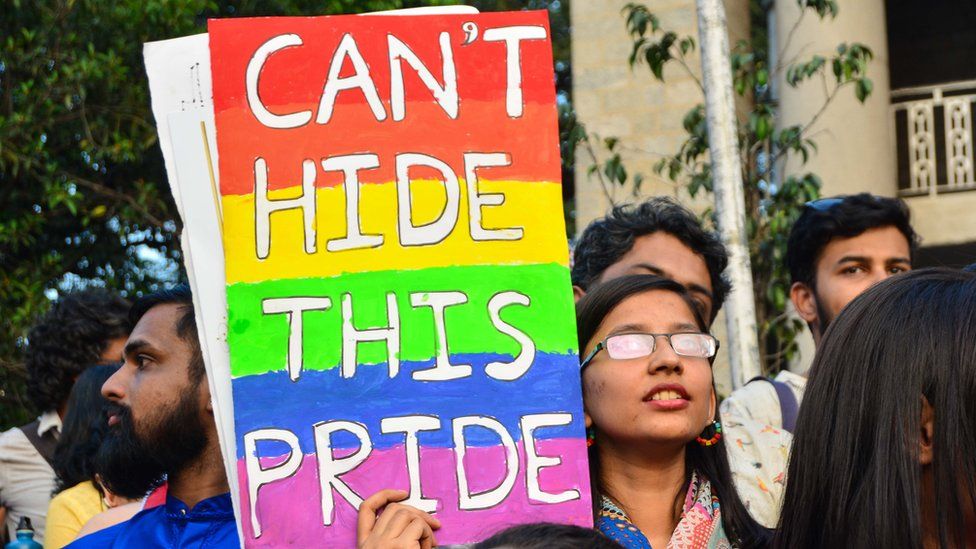
By doing so, they reinforce the notion that queer liberation can be achieved within the existing capitalist framework, conveniently neglecting the systemic issues that perpetuate oppression and discrimination.
Pride extends far beyond the superficiality of fancy clothes, parties, and corporate endorsements that tend to overshadow its true essence. It is crucial to examine the year-round actions of these NGOs, as Pride is not confined to a single month. It prompts us to reflect on whether these organisations genuinely advocate for the ongoing struggles faced by queer individuals.
Capitalist propaganda operates by using superficial displays of inclusivity and rainbow branding to create an illusion of support for the LGBTQ+ community. Many brands capitalise on Pride Month by adorning their products with rainbow flags and slogans, presenting themselves as allies.
When queer individuals march in Pride, they celebrate their existence while simultaneously fighting to claim the space denied to them by the oppressive forces of heteronormativity. It is a relentless battle for the dignity and recognition of queer people, a testament to their unwavering resilience and perseverance.
Pride serves as a powerful reminder that the fight for equality and justice is not limited to a mere spectacle but an everyday struggle for the rights and well-being of the queer community. It is important to recognise that Pride is inherently political, rooted in the fight against injustice, discrimination, and police brutality faced by the LGBTQ+ community. By critically examining the role of certain LGBTQ+ NGOs and their alignment with capitalist ideologies, we can expose the underlying motives that seek to depoliticise Pride.
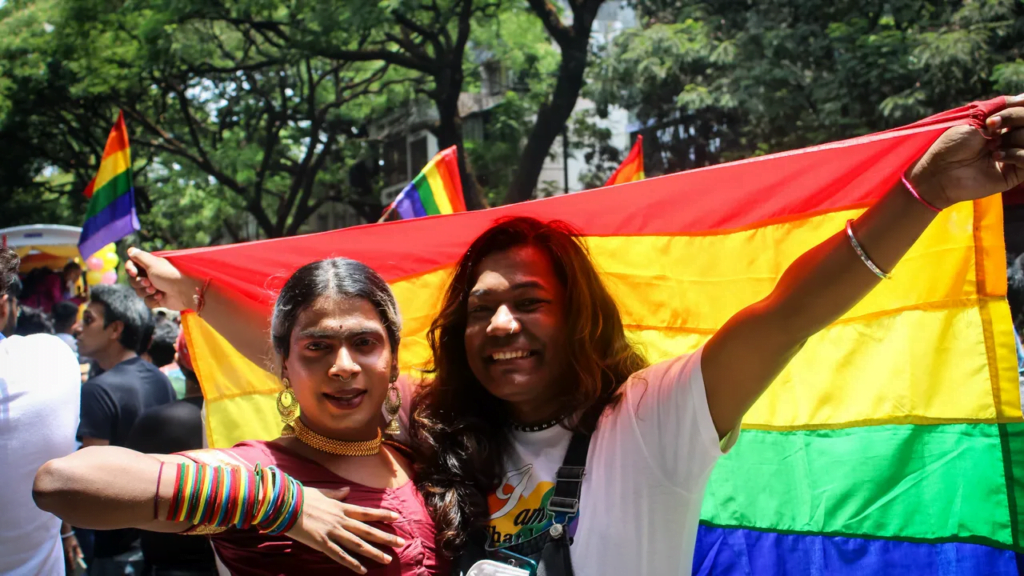
The capitalist narrative glosses over the struggles, fears, and intimidation faced by those at the intersections of caste and sexuality. Their inclusivity and diversity rhetoric, while appealing on the surface, fails to address the harsh realities and systemic oppression experienced by Dalit queers.
This disparity exposes the hollowness of capitalist-driven inclusivity. It is important for us to reclaim the true essence of Pride as a powerful platform for protest, resistance, and advocacy for systemic change. Queer liberation extends beyond the performative rainbow displays and requires dismantling the structures of capitalism that perpetuate inequality.
Pride, a celebration and resistance
It is crucial to recognise that Pride embodies a duality that encompasses both celebration and resistance. The joy and camaraderie experienced during Pride events should not overshadow the urgent need to address systemic inequalities and dismantle oppressive structures. Pride, at its core, is a political act, demanding social change and challenging the status quo. It is necessary to embrace both the celebratory and resistance aspects of Pride.
While doing so we can foster a more inclusive movement that acknowledges and amplifies the intersecting identities and struggles within the LGBTQ+ community, including the unique challenges faced by Dalit queers, who often endure intersecting forms of discrimination and marginalisation. It allows us to centre the experiences and voices of those most marginalised within the LGBTQ+ community and work towards dismantling the brahminical forces and heteronormative structures that perpetuate oppression.
In recognizing the political essence of Pride and the necessity of embracing both celebration and resistance, we can forge a path towards a more just and inclusive society. It is through this recognition and action that we can truly honour the struggles and aspirations of the LGBTQ+ community, fostering a movement that paves the way for genuine liberation and social transformation.
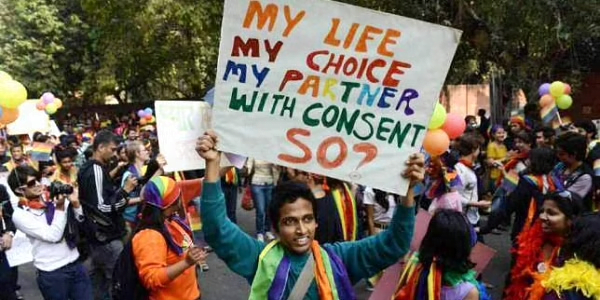
An inclusive path towards queer liberation necessitates a critical examination of capitalist narratives and structures. By deconstructing the hollow facade of capitalist inclusivity within Pride March, we can confront the hidden realities and daily terrors faced by the queer community. The struggles, pain, and sufferings endured by the queer community cannot be fully understood or appreciated through superficial expressions of support.
The joy and camaraderie experienced during Pride events should not overshadow the urgent need to address systemic inequalities and dismantle oppressive structures. Pride, at its core, is a political act, demanding social change and challenging the status quo. It is necessary to embrace both the celebratory and resistance aspects of Pride.
True queer liberation cannot be achieved within the confines of capitalism; it requires a radical reimagining of societal structures. True solidarity requires an active commitment to standing alongside the queer community, raging against the injustices they face, and advocating for meaningful change. As we reflect on the hollow facade of capitalist inclusivity within Pride events, we must strive for a deeper understanding of the queer experience.
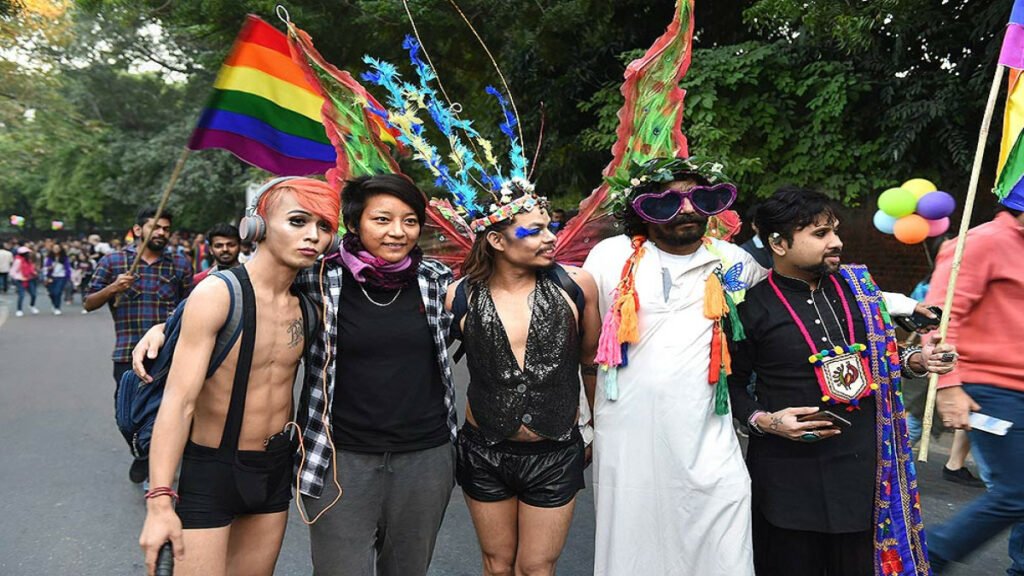
This understanding demands that we create spaces that actively listen to and validate the experiences of queer individuals, especially those who exist at the intersections of multiple marginalised identities. It calls for collective efforts to dismantle the systemic barriers and oppressive structures that perpetuate the suffering of the queer community.
As Pride month unfolds, amidst the prevalent all-inclusivity rhetoric embraced by numerous NGOs, it becomes vital to reiterate its core essence as an act of resistance. True queer liberation necessitates a steadfast commitment to intersectionality, transcending boundaries by dismantling caste-based constraints and acknowledging the imperative of addressing class struggle.
The ruling party’s stance on upholding heteronormative structures further compounds the marginalisation and discrimination faced by the LGBTQ+ community. In this critical juncture, it becomes imperative for individuals across the spectrum of sexual orientation and gender identity to unite and actively advocate for the rights and existence of the LGBTQ+ community.
In the current social and political landscape of India, the LGBTQ+ community face an intensified challenge as their very existence and fundamental rights are being undermined. This can be observed in the ongoing debates surrounding marriage equality, which reveal a clear reluctance from the ruling party to recognise and acknowledge the rights of queer individuals.
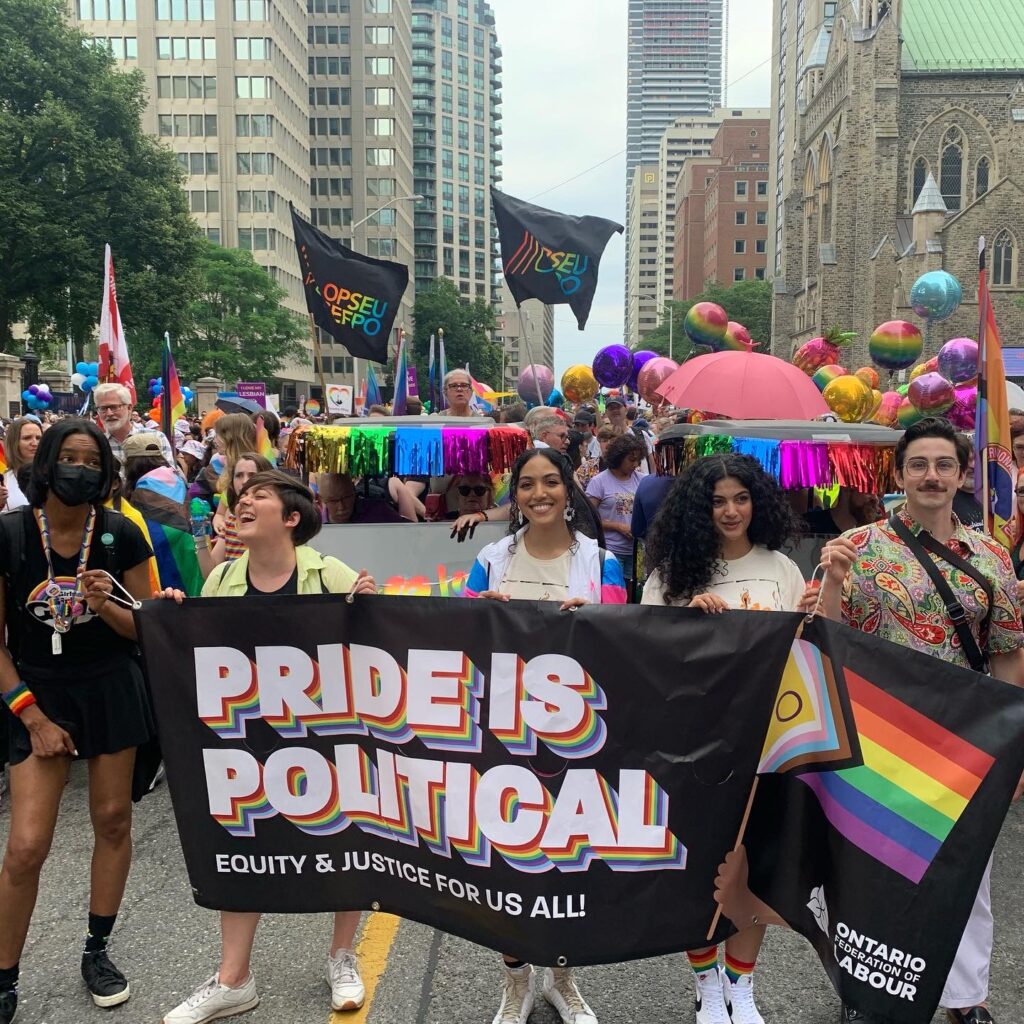
The ruling party’s stance on upholding heteronormative structures further compounds the marginalisation and discrimination faced by the LGBTQ+ community. In this critical juncture, it becomes imperative for individuals across the spectrum of sexual orientation and gender identity to unite and actively advocate for the rights and existence of the LGBTQ+ community.
This necessitates the raising of collective voices, challenging discriminatory narratives, and demanding equal rights and recognition for queer individuals. By engaging in this fight for justice, we have the potential to cultivate a more inclusive society that embraces and celebrates the diverse identities of all its members.
